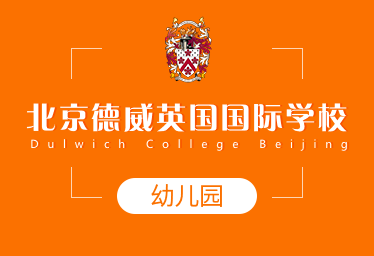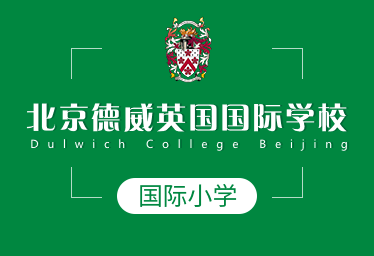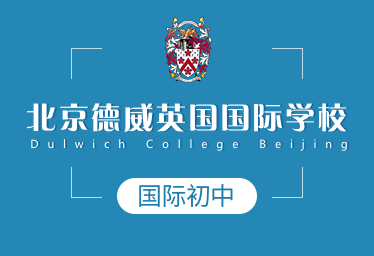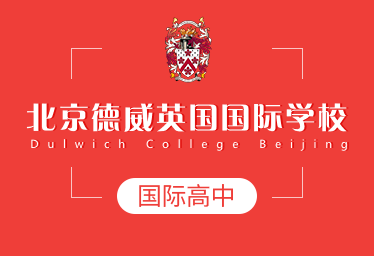北京德威英国国际学校小学服务项目负责人Laura Clark分享“智行天下”之旅
来源:国际学校信息网
时间:2023-03-07 16:04:03
今天小编搜罗了北京德威英国国际学校小学服务项目负责人Laura Clark分享“智行天下”之旅希望给择校的家长们提供参考。
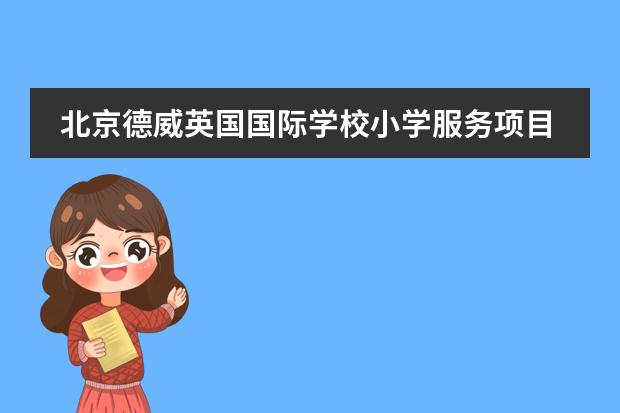
An interview with Laura Clark
Laura Clark | DCB Junior School Service Lead
Sustainability is one of the strategic priorities in the College's 2021-2022 Development Plan. To better understand what it means and how sustainability is embedded in DCB's teaching and learning, we have interviewed our three Sustainability Leads in Early Years, Junior School, and Senior School respectively.
This week, we spotlight Laura Clark, Junior School Service Lead, to share her observations and ideas on the journey of Live Worldwise.
1How do you describe your mission and responsibilities as the Sustainability Lead in Junior School?
I don’t see myself as a decision-maker, and don’t think my role is to tell people what they should be doing. I support by connecting our teaching and learning to global issues, and sharing resources, ideas and best practices to enable others to make those connections too. I want Junior School to be a community that has the skills, knowledge and resources to look at what we do through a critical sustainability lens. My goal is for the Junior School community – staff, students and families – to have the tools to feel empowered to make a change in the world.
I have been at DCB for several years and held a similar role in Early Years. This is my first year as the Junior School Service Lead, which also includes responsibility for sustainable practice. The role was previously held by Ms Claire Elliot, and I hope to continue the fantastic work she has done for the College. At the same time, I would like to bring my own particular style and vision to Junior School!
I am working on building a bank of information and resources that people can use for teaching. This year, one of our Junior School Professional Learning Communities will be looking at what it means to Live Worldwise. One of our key actions will be to ensure that all staff understand the concept and confidently share that with our students and the rest of the community.
2How would you define sustainability? What does it mean exactly?
The most often quoted definition comes from the UN World Commission on Environment and Development: "sustainable development is a development that meets the needs of the present without compromising the ability of future generations to meet their own needs." It goes beyond the now-common sustainable initiatives such as using bamboo straws, recycling trash correctly, or carrying a cotton bag wherever you go. Of course, these are all great Teaspoons of Change towards reducing waste, but the UN Sustainable Development Goals (SDGs) provide us with a broader vision of what a sustainable world looks like. Sustainability is about people as well as the planet.
Explaining the concept of sustainability is tricky, especially with younger students! One of my favourite ways to make it more visual is through the ‘doughnut’ economic model.
The outside of the doughnut represents our ecological ceiling – the environmental limits which should not exceed. The inside layer of the doughnut is the social foundation. While it’s important to work towards reducing our impact on the planet, we also need to remember the people inside the ‘doughnut hole’, who face inequalities, poverty, hunger, disease, and lack of access to health care. We need to work together as a global collective to support those people in moving upwards into the doughnut and preventing people from falling below that foundation – the ‘happy space’ for us all to live where we have sustainable development.
One example of how we recently supported others in reaching that safe space, is Pink Week, organized by the Senior School students in the Interact Club. All funds raised during Pink Week went to Wheels for Life, a mobile medical service that travels to rural areas in China to enable people to receive medical services such as vaccinations, breast cancer screenings and check-ups. If we assess it through a sustainability lens, with an understanding of the SDGs, we will see we are contributing to one Global Goals – SDG 3: Good Health and Wellbeing, which aims to ensuring everyone has access to healthcare.
3How is sustainability embedded in Junior School's teaching?
Our teachers have already begun to work towards embedding sustainability in everything we do, including our teaching and learning. We are shifting our focus from learning objectives in isolation to a richer understanding of concepts and development of skills. We encourage students to apply their knowledge to real-world problems through authentic links.
In Year 5, we are currently learning about Space. This year, we are creating links with global issues and looking at what we can learn from Space exploration to solve global issues. The teachers’ role is to find areas where students can begin to make their own connections.
Another way that we can get students to feel more connected with, and develop an understanding of, global issues is through books. Storytelling is an incredibly effective vehicle for learning, and stories can make the SDGs become real to students by making difficult concepts easier and by developing empathy for others. I am working with Ms Sandra Greenwell, the Senior School Head of Libraries, to develop a collection of books and stories connected to each of the Global Goals. We plan to create a display in the Junior School Library sharing books linked to a ‘Global Goal of the Month’.
The Global Goal of the Month is another initiative I am working on. In October, we highlighted SDG3: Good Health and Wellbeing, to take advantage of the natural links with Pink Week and World Mental Health Day. In November, COP26 (26th Conference of Parties) is taking place in Glasgow in the UK, to discuss climate change. The whole Dulwich group will be engaging in actions to reduce our carbon footprint in No Carbon November; we will be doing the same in Junior School and highlighting the link to SDG 13: Climate Action.
4How do you help Junior School students to understand those concepts in an easy and accessible way?
It begins in Early Years where students are now being exposed to the Global Goals in an age-appropriate way, through stories and hands-on activities. Although not explicitly taught as a Sustainable Development Goal, it is the time when we start developing a sense of self and empathy for others. They talk about their family, friends, school, class, and teachers in the morning circle time. They help clean up toys, support their classmates, show appreciation to others, and talk about “things that we can do to make the world a better place."
In Junior School, I am so pleased to see many students already coming to Year 3 with some ‘Global Competencies’ - skills, knowledge and dispositions - which they can apply to their learning and develop the understanding that they can be changemakers. I am always amazed at the ideas, critical thinking, and sense of responsibility of our Junior School students. When we talk about playground behaviour and finding solutions to conflicts or arguments with friends, they are taking the first steps towards ‘Peace’ in a context that is meaningful to them. With older students in Junior School, who may have a more developed sense of identity and awareness of the world we are part of, we can begin to discuss wider Global issues related to SDG 16: Peace, Justice and Strong Institutions, and illustrate by linking back to those childhood playground conflicts!
We already do so many things that add to our development as Global Citizens. In Junior School, we all celebrate wellbeing time in the morning, focusing on mindfulness, values and classroom community.
As we are getting close to the winter festival season, look out for service initiatives such as the acts of service advent calendar. There are also learning opportunities to be humble and explore ideas of inequalities, responsible consumption and poverty, which are also among the Global Goals.
5How do the three Sustainability Leads across the three schools work together?
We exchange resources and identify shared goals. One of our shared goals is working on the College's biodiversity in our sustainable garden and making the space available for students to use for projects. We have also worked together to promote No Carbon November across the College. It is also really important to share across the Dulwich group, so we also have an active online community of Service and Sustainability Leads from all Dulwich and Dehong schools.
6Have you witnessed any development of people's 'sustainability mindset'?
Yes, I have noticed particularly this academic year that people from the whole College are more engaged and treat sustainability as a priority. We provide quality education (which in itself is a Global Goal – SDG 4: Quality Education for all!) and we are always looking at what we can enhance what we do in the classroom and the College to be a truly progressive international school. Many people have approached me and proactively proposed ideas on how we can make things better. I am seeing students across the College independently taking action to create change. For example, some Year 6 students recently proposed introducing plant-based meat and better vegetarian options to the Junior School Cafeteria, after learning that worldwide over-consumption of meat has a huge negative impact through climate change.
Junior School students enjoying a plant-based meatlunch
7In a nutshell, what would be your "one word" to the DCB community?
Live Worldwise is our new mission. It is not only a mission for graduating students but for every member of the community, to use a ‘global citizen’ lens in everything we do. We all have an impact on people and the planet, so let’s make our impact a positive one.
赋予他人改变的力量
采访Laura Clark
Laura Clark | 北京德威小学服务项目负责人
可持续性是学院2021-2022年发展计划的战略重点之一。为了更好地理解这意味着什么,以及可持续性议题如何与北京德威的教学相结合,我们分别采访了学前、小学和中学的可持续性议题负责人。
本周,我们聚焦小学服务项目负责人Laura Clark,与大家分享她对“智行天下”之旅的观察和思考。
1作为小学可持续发展负责人,你如何定义你的使命和责任?
2你如何定义可持续性?可持续性到底意味着什么?
3可持续性是如何与小学教学相结合的?
老师们已经开始将可持续性融入到我们所做的每一件事中,包括我们的教学。我们正在将教学重点从孤立的学习目标转移到更丰富的概念理解和技能发展。我们鼓励学生通过与现实建立连接,将他们的知识应用于解决现实世界的问题。
在5年级,我们正在学习有关太空的知识。结合今年我们正在建立与全球问题的联系,我们会探讨从空间探索中学到什么来解决全球问题。教师的角色是找到学生可以自己建立联系的领域。
另一种让学生与全球问题建立更多联系并对其有更多理解的方法是通过阅读。故事是一种非常有效的学习方式,故事可以让学生更容易理解困难的概念,培养对他人的同理心,从而使可持续发展目标成为更真实易懂的概念。我正在与图书馆负责人Sandra Greenwell女士合作,收集与全球目标相关的书籍和故事。我们计划在小学图书馆建立一个展示台,分享与“本月全球目标”相关的读物。
月度全球目标是我正在进行的另一项倡议。10月,借着粉红周和国际心理健康日的契机,我们重点介绍了可持续发展目标3:良好的健康和福祉。11月英国格拉斯哥会举行26届联合国气候变化大会,整个德威集团的学校也在参与“零碳11月”的倡议,我们本月会在小学将教学与之相连,本月的全球目标就是可持续发展目标13:气候行动。
4你如何帮助小学生以简单易懂的方式理解这些概念?
5三个学部的可持续发展领导如何协同工作?
6你是否观察到一些“可持续思维”的发展?
小学生试吃植物肉午餐
7如果要你对北京德威社区给与“一个词”的寄语,会是什么?
智行天下。这是我们的新使命,这不仅关系到毕业生,也关系到社区每一个成员,它要求我们在所做的每一件事中都使用“全球公民”的视角。我们都会对人类和地球产生影响,所以让我们的影响变得积极起来。
下一篇:北京德威英国国际学校招生信息大全



